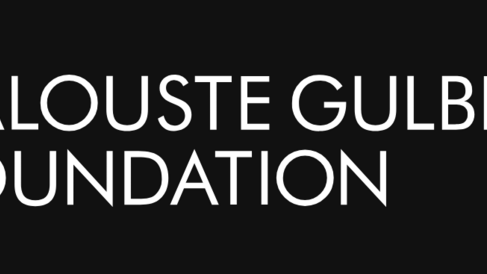
Early career researchers (within 5 years of PhD degree)* are invited to submit proposals for projects on Armenian-Turkish relations with a contemporary focus.
Applications across social sciences and humanities are eligible, such as political science, economics, sociology, anthropology, modern history and religious studies.
Subject to the approval of the Faculty Board, researchers will obtain a one-year visiting scholar position at the Faculty of Divinity, University of Cambridge, and be affiliated to Cambridge Interfaith Programme.* Their work will receive feedback from senior academics and policy specialists, with mentors assigned to each researcher.
Researchers will be required to participate in an online workshop in the week beginning 3 October 2022 and a multi-day workshop at the University of Cambridge in March 2023. Researchers will also be invited to take part in other training and dissemination events throughout 2022–2023, under the auspices of Cambridge Interfaith Programme.
The application deadline is midday on 9 September 2022 (BST). Application documents should be attached to a cover email and sent to relations @ divinity.cam.ac.uk.
Eligibility
All researchers who hold a PhD degree or have successfully passed their viva by the time of the application and have received their degree after 1 September 2017 are eligible. All PhD candidates, who have already submitted their PhD work, are also eligible, provided that the research project to be submitted for this call is not part of their PhD project. Applications may be made by independent scholars who also fulfil the above-mentioned conditions.
What types of projects are eligible?
All projects within the field of social sciences and humanities that focus on relations between Armenians, Turks, and other communities that have surrounded them are eligible. The project must have a contemporary focus.
How much funding is available?
Five grants, of up to 14,000 GBP per applicant, will be awarded. The awards are provided to cover the cost of the expenses arising from a defined research project.
How will the payments be made?
Researchers will have their contracts directly with the Calouste Gulbenkian Foundation. Pending final approval, researchers will receive one payment at the beginning and one payment at the end, after the delivery of the outputs. These funds will be made available to the researchers directly from the Calouste Gulbenkian Foundation, Lisbon.
How long should the projects last?
The funding period will end in July 2023.
What deliverables/outputs are required?
The grantees should agree to take part in the two workshops at the beginning and the end of the funding period. The researchers should have submitted a research paper for publication in an academic journal, disseminated policy recommendations (normally through a policy paper submitted/available online or through a policy magazine), and have one newspaper article detailing research results to a non-expert audience published by the end of the funding period.
What support is provided?
The University of Cambridge will arrange training to support researchers in writing for a general audience (including newspaper articles) and communicating with policymakers, supporting the development of deliverables for these audiences. Researchers will also have access to professional copy-editing support, subject to meeting agreed writing deadlines.
We recognise that some researchers will have little or no prior experience of engaging with policy audiences. The proposed route for disseminating policy recommendations will be reviewed on a project-by-project basis during the selection process. Proposals may then be further revised in conversation with mentors, the University of Cambridge, and an appointed policy consultant. Support will be provided in identifying suitable outlets. An outline of key dates is available to download.
Application
Applications must include:
- A project title
- Full name of researcher (applicant)
- Summary of the project (maximum 300 words)
- Detailed project description (maximum 4000 words) that includes:
- the research question,
- the state of the art in the respective area of research,
- methodology,
- contribution of the project to scholarly research,
- potential contribution of the project to Armenian-Turkish relations,
- the anticipated outputs, impact, and the target audiences.
- a work plan (with reference to the deadlines in the Outline of key dates)
- An up-to-date C.V. including the date of award of your PhD.
- Applicants should also arrange for one referee to send a letter directly (to relations @ divinity.cam.ac.uk) by the application deadline.
Assessment
The projects will be evaluated by a panel of senior researchers and policy specialists who will assess the projects on the following criteria.
- Originality
- Scholarly importance
- Suitability of the method
- Feasibility and the specificity of the research programme
- Intended outputs and impact
- Potential contribution to Armenian–Turkish relations
- Relevance for policy outlets / audiences
A note on eligibility
Beneficiaries of the previous scheme (2021–2022) are eligible to apply. However, the scheme seeks to build capacity for individual early career researchers through skills-based training and networking opportunities. For this reason, preference may be given to newcomers who can derive greater benefit. Scholars from the initial cohort may participate in some training opportunities and in the March workshop (provided certain conditions are met).
Scheduling
Online training and activities for Visiting Scholars will normally take place on Mondays. Cambridge Interfaith Programme also offers an afternoon seminar programme on alternate Tuesdays (hybrid) and other events under the auspices of Cambridge Interfaith Research Forum. Membership of the Forum is available to Visiting Scholars on an opt-in basis.
*Visiting Scholar status is only available to persons who have already obtained a PhD. For this reason, we cannot accept applications from those who have not yet completed their PhD (or will not have done so by 30 September 2022).
The Faculty of Divinity also has an open call for a Visiting Scholar from a developing country (deadline: 1 November). Candidates for this scheme whose research domain include inter-religious studies are encouraged to contact CIP prior to applying.
